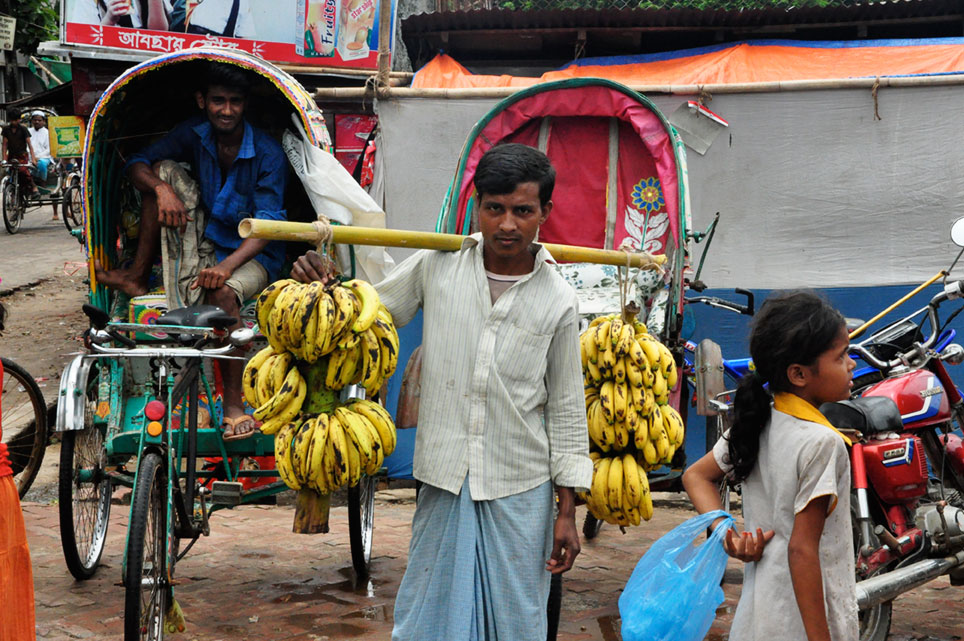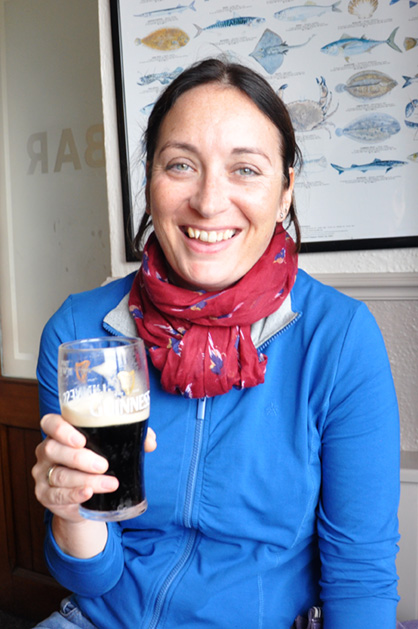I left my family and friends in Claregalway in 2000 to pursue my life as an aid worker overseas, starting off in Kosovo with Concern Worldwide, this was in response to the conflict which broke out in 1999. Fourteen years on and I’m still working overseas having worked in Afghanistan after 9/11, Indonesia after the Tsunami, Darfur in Sudan, Sri Lanka after the last days of the war between Tamil Tigers and the Sri Lankan Government, with refugees in West Africa and now Bangladesh with the European Commission.
You might wonder, what is life like in Dhaka, the capital of Bangladesh. Just to give you an idea, my journey to work each morning typically involves patiently maneuvering through Dhaka traffic, and lots of it. I suppose in this sense it’s no different to home, and traffic on the N17 except, in a mega city like Dhaka, with a total population of more than 15 million people, the daily commute can certainly try one’s patience.
As I make my way to work, I notice people on the streets navigating through the slow moving traffic without any consideration for their own personal safety, or the elderly men or women begging and knocking on car windows for what they call Bakshish (loose change to buy some food). Around the corner from my apartment there are young children who attend a street school twice a week. They are given school bags, uniforms and some rice and dal (lentil stew) as an incentive for them to come and learn. When traffic comes to a stop, dozens of people come knocking on my window either begging for money or selling trinkets or the latest pirated DVD, book or Hello magazine.
Near the crossroads, there are men who run the local tea stall which is busy throughout the day. Tea here is very important and it’s not how we would normally drink it. The tea is left boiling in the kettle on the fire until required—when it’s no longer black in colour but a strong orange hue. In each cup they put five to six spoons of sugar and a hearty whallop of condensed milk, usually accompanied by a very sweet sponge cake. Bangladeshis love sugar, and as a result incidences of diabetes is very high, but it is also perceived as a rich man’s disease, as the poor cannot afford sugar.
Ordinary people here know hardship, they know what it’s like to get by hand-to-mouth, not knowing if they will have only one or if they are lucky two meals today.
Most Bangladeshis and foreigners living in Dhaka spend some percentage of their daily routine talking about just how bad the traffic is in Dhaka—no matter if you’re rich or poor, everyone suffers from the traffic jams. There’s an added dimension during the seasons while expats celebrate the arrival of winter and the dropping of temperatures—when finally it feels as if one can breath again. Until we remember, that with winter comes other challenges such as dust and pollution.
The dust fills the air and pollution from the nearby brick factories and vehicles make it difficult to breathe when the smothering smog fills the air—a stench so strong that it feels as if the odour sticks to one’s skin and nothing will do until it’s washed off.
With winter comes the arrival of the dreaded mosquito, making it difficult and uncomfortable to enjoy the cooler evenings. Despite what one might think of a South Asian country such as Bangladesh, it can get cold during winter, and those who feel it most are the unfortunate ones—those living on the streets with no roof over their head. As a result some International or Local Non Governmental Organisations (NGOs) distribute fleece blankets to those in need during this time.
I moved to Bangladesh in 2013, I work with the Humanitarian Aid and Civil Protection divison of the EU office in Bangladesh. My job specifically requires me to ensure that funds which the European Commission (DG ECHO) provide to the likes of the UN, Red Cross or INGOs, is spent on those who need it most and that agencies who promise to deliver and carry out certain activities do this. Bangladeshis are probably some of the most resilient people I have ever met. During the past ten years approximately 27 million people have been affected by natural disasters such as cyclones, flooding or landslides, and yet they manage to continue on with life, to educate their children and put food in their bellies.
I consider myself to be one of the lucky ones who just so happened to be born in Galway, in Ireland, in Europe. What I do, where I work and the people I meet allow me to be thankful for the small things in life—my health, my circumstances, my family and friends, the country I belong to and the opportunities I have to try and help those who are less fortunate. Not to mention the support which Ireland as a small nation provides to those less fortunate than us. As someone who works directly with people affected by natural disasters and conflict I see the difference that your donations makes in the lives of those less fortunate and it is important to say—Thank you!
- What I look forward to on my next trip home!






